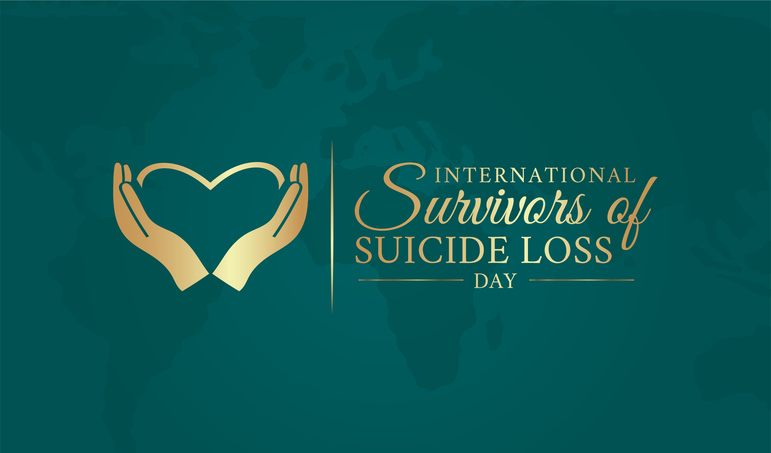It is estimated that 49,000 Americans and 700,000 people around the world died by suicide last year. These deaths send shock waves through families, workplaces, schools, friend groups, communities, and our society as a whole. Every year, on the Saturday before Thanksgiving, International Survivors of Suicide Loss Day (also called Survivors Day) is marked to remember those who have been lost and raise awareness about suicide prevention. In 2024, Survivors Day will fall on November 18. At Highland Hospital Behavioral Health, in Charleston, West Virginia, we provide compassionate, holistic, personalized care for patients who are struggling with suicidal thoughts.
What is Survivors’ Day?
Survivors Day looks different from place to place. Some events are open to the public, while others are only offered to suicide loss survivors. Activities often include memorial services, support groups for survivors, and events targeted at increasing conversation about suicide prevention.
The in-person Survivors Day events in Charleston require pre-registration and are only open to survivors. Virtual events are also available.
Struggles Survivors of Suicide Face
After a loved one ends their life, family and friends often struggle with grief and feelings of guilt. They may start to isolate themselves from others and experience sleep issues and depression.
Research has found that talking with other survivors can increase how supported they feel and can facilitate recovery while protecting them from some of the harmful effects of their loss.
What Increases a Person’s Risk of Suicide
Many factors can affect whether a person will consider, attempt, and complete suicide. Some examples include:
- Previous suicide attempts or family history of suicide
- Mental health and substance use disorders
- Chronic pain and medical diagnoses
- Surviving violence due to abuse, military deployment, or natural disasters
- Experiencing discrimination (often due to race, immigration status, LGBTQ identity, etc.)
- Life stressors: financial problems, relationship issues, job loss, loss of a loved one
Suicidal Ideation in Children and Adolescents
Many people believe that kids do not experience mental illness or suicidal ideation, but this is simply not true. Young people often struggle with suicidal thoughts following:
- Conflict with friends or family
- Bullying
- Suicide of someone they know
- Onset of mental illness
- Trauma
- Rejection due to their sexual orientation or gender identity
How You Can Help Prevent Suicides
Suicides are often preventable, and you do not have to be a mental health or substance abuse expert to help a loved one overcome their impulse to commit suicide. If you are concerned that someone could be suicidal, you can:
- Familiarize yourself with the signs of suicidal thoughts:
- Hopelessness and feeling trapped
- Increased impulsivity, risky behavior, or aggression – which might include reckless driving, increased substance use, or violence
- Thinking, talking, or writing about death, dying, or suicide
- Gathering items they could use to end their life
- Isolation, loneliness, and withdrawing from friends and family
- Lack of needed health care, especially mental health care
- Talk to them about what you have seen in them and ask if they are thinking about ending their life
- Listen to what they have to say, and stay with them until there is a solid plan in place to keep them safe (or, help them reach out to other friends and family members who can stay with them if you are unable to do so)
- Limit their access to means of ending their life (firearms, sharp objects, chemicals, medications, rope, etc.)
- Help them to reach out for professional help:
- Schedule an emergency appointment with their therapist, take them to walk-in mental health services, or connect them with their spiritual leader if they are part of a faith community.
- Call or text 988 to connect to the National Suicide Crisis Lifeline, where a trained crisis counselor can help them talk through a plan to get help and stay safe.
- If they are a Veteran, the Veterans Crisis Line can help.
- If they are transgender, the Trans Lifeline can help.
- If they are a young LGBT+ person, The Trevor Project can help.
- If the above options aren’t possible, call 911 or drive them to the nearest emergency room
After the person has received help, follow up with them to see how they are doing and if they need additional support. At Highland Hospital Behavioral Health, we are here to help people who are struggling with suicidal ideation. We know that recovery from mental illness and suicidal thoughts is possible because we witness it every day in the children, adolescents, and adults we treat.










